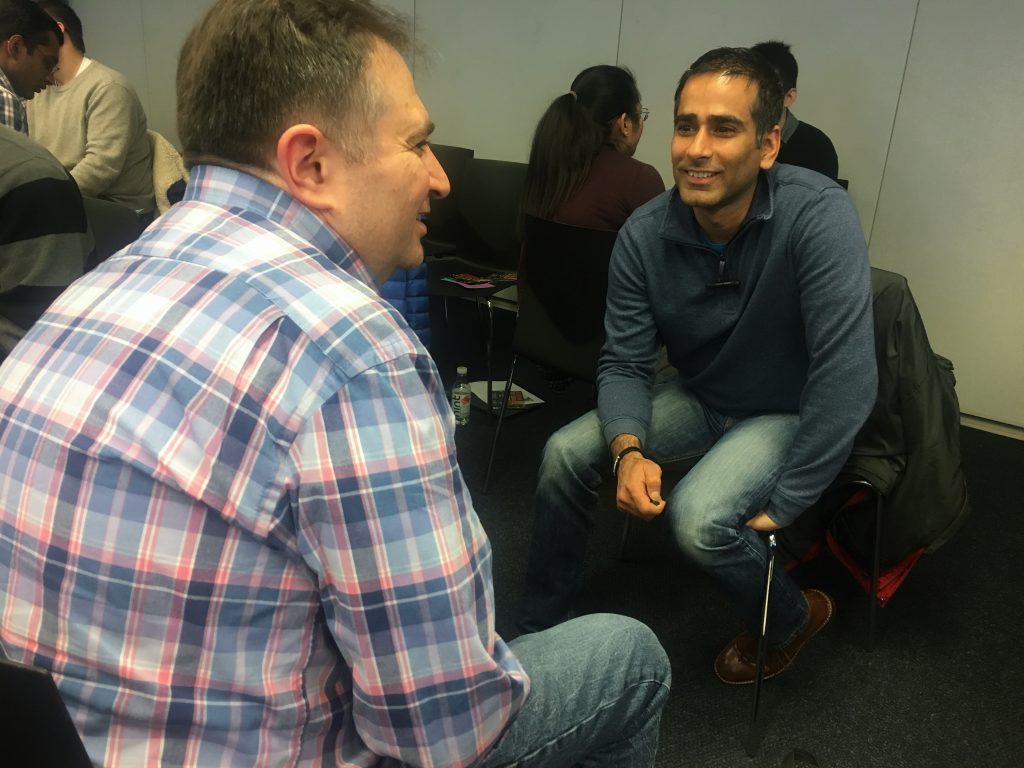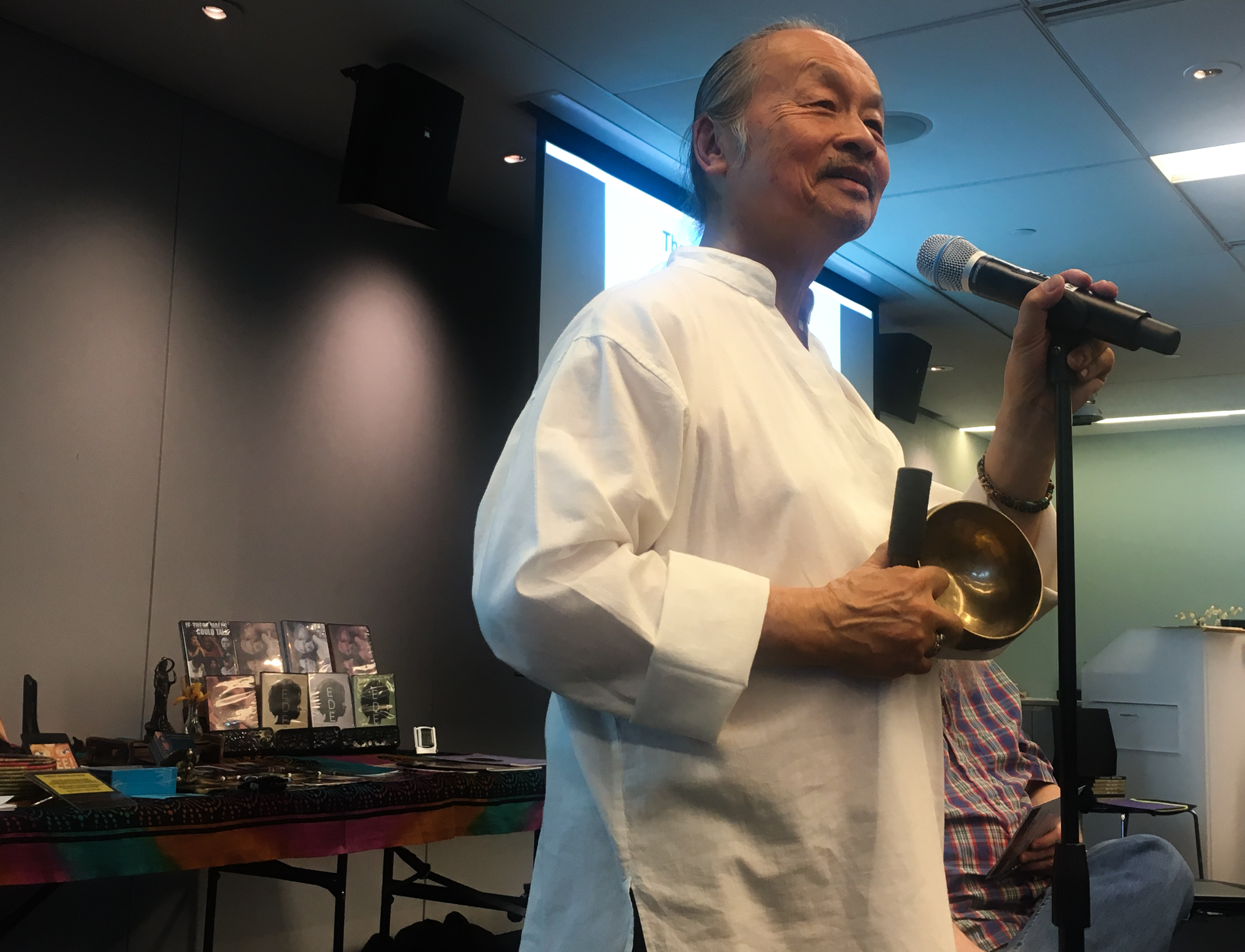At Microsoft, we’re committed to keeping a growth mindset — meaning we believe in fostering a culture in which everyone can grow and develop. By moving beyond a fixed mindset, we are able to continue learning and growing; this is particularly important as we focus on a culture of diversity and inclusion.
To carry that mindset forward, we invited Lee Mun Wah, filmmaker, poet, author, Asian folkteller, educator, community therapist and master diversity trainer to our NERD center. In his role as Executive Director of diversity training company Stirfry Seminars & Consulting, Lee Mun Wah led our team through workshops on cross-cultural communication and awareness.
The silence was palpable as Lee kicked off the morning, moving slowly around the room and observing his surroundings. Finally, he lifted the microphone and asked, “Who would like to tell me how they just felt?”
One woman answered: “There was a sense of expectation.”
He walked to the next person, shaking his hand. “How did you just feel?”
The man answered the same: “Expect the unexpected.” Lee asked this man his name and position at the company. They shook hands and Lee Mun Wah continued asking employees about the silence.
What few people in the room noticed was that he was intentionally dismissing the women, and only interacting directly with the men. This, Lee said, is how easy it is for blatant discrimination to be overlooked.
“Here you are coming to a diversity workshop, and you didn’t even see that!” Lee exclaimed. “Why?”
He expected the answers he was given — “It’s nothing new” or “It wasn’t my place to speak up” or “I wanted to be polite.” And Lee spent the next two hours providing us with the insight and courage to make sure we never use those excuses again.
Discrimination, Lee explained, happens every single day. It’s a betrayal — to your senses, to what’s right, and to what you deserve. Discrimination is something you don’t forget. Lee then taught us valuable lessons in preventing discrimination from happening on our teams.
Part of the workshop included recognizing the difficult questions that need to be asked in the workplace, such as “have you ever been discriminated against?” Understanding a teammate’s negative experiences with discrimination can help prevent repeating them in your workplace. While this can be a difficult subject to broach, Lee showed us how to become closer so that we feel more comfortable asking these types of questions.
Even the small questions, he said, can make an impact toward inclusion. Lee Mun Wah introduced one of our teammates, Gowri Shankar, and then asked if anyone knew his native language. Very few of us did, leaving us to wonder why we had never shown interest in his culture. Lee then offered two questions you can ask someone who speaks another language: how to say good morning, and how to say thank you. We learned these phrases in Gowri Shankar’s native language, Telugu, together: Namaste (Good Morning) and Dhan’yavādā (Thank You).
“We become greater when someone sees us. We become diminished when someone doesn’t see us,” Lee explained.

We then moved on to an exercise that brought us outside of our comfort zones. Most of us, we admitted, had sat next to someone we already knew. So, Lee Mun Wah had each of us pick a coworker we didn’t know, and sit face-to-face with them. Together, we shared: our names (and exactly how to pronounce them), our ethnicities, and something about us that isn’t visible. We addressed the assumptions we made about one another and talked about how those assumptions made us feel. We also each shared a personal experience that strongly defined our identities. Mostly, we took the time to get to know someone different.
Lee Mun Wah left us with tools we could use to improve our awareness and prevent discrimination: guides to mindful intervention and facilitation, and an entire packet of handouts and exercises. Ultimately, though, we learned that the best tool we had was the willingness to connect with others.
“That’s what a leader is,” Lee explained. “someone who makes you feel good about yourself, and about others.”
Learn more about Microsoft’s commitment to a growth mindset here.

